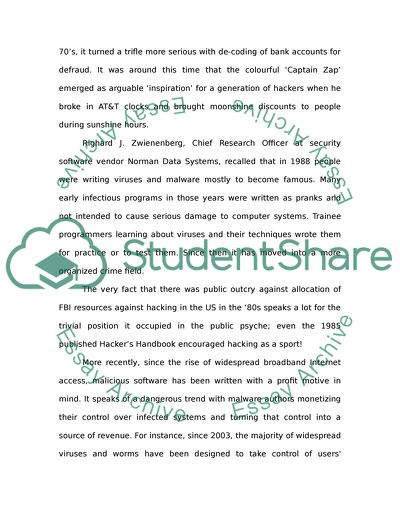Cite this document
(The Malware Writers and Hackers Article Example | Topics and Well Written Essays - 1250 words, n.d.)
The Malware Writers and Hackers Article Example | Topics and Well Written Essays - 1250 words. Retrieved from https://studentshare.org/information-technology/1414096-the-malware-writers-and-hackers
The Malware Writers and Hackers Article Example | Topics and Well Written Essays - 1250 words. Retrieved from https://studentshare.org/information-technology/1414096-the-malware-writers-and-hackers
(The Malware Writers and Hackers Article Example | Topics and Well Written Essays - 1250 Words)
The Malware Writers and Hackers Article Example | Topics and Well Written Essays - 1250 Words. https://studentshare.org/information-technology/1414096-the-malware-writers-and-hackers.
The Malware Writers and Hackers Article Example | Topics and Well Written Essays - 1250 Words. https://studentshare.org/information-technology/1414096-the-malware-writers-and-hackers.
“The Malware Writers and Hackers Article Example | Topics and Well Written Essays - 1250 Words”, n.d. https://studentshare.org/information-technology/1414096-the-malware-writers-and-hackers.


